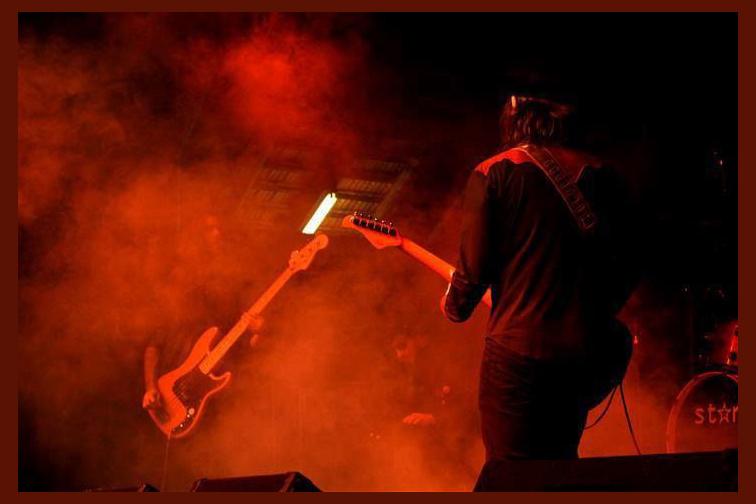 Capolla
Capolla
Capolla: A Musical Odyssey
Capolla, a beacon in the Brazilian indie music scene, emerged in the vibrant tapestry of Belo Horizonte in the early 2000s. Their music, a captivating blend of dreamy melodies, introspective lyrics, and ethereal soundscapes, has resonated with listeners across generations.
Members:
* Pedro Sá: Vocals, Guitar
* Rodrigo Gorky: Guitar
* Marcelo Camelo: Bass
* André Mehmari: Drums
Challenges and Controversies:
Capolla's path to success was not without its hurdles. The band faced criticism for their unconventional sound, which defied easy categorization. Their candid lyrics, often exploring themes of love, loss, and the human condition, also drew mixed reactions. However, Capolla remained steadfast in their artistic vision, refusing to compromise their integrity.
Discography:
Capolla's discography is a testament to their versatility and the evolution of their sound:
* "Capolla" (2002): Their debut album showcased their ethereal, dream-pop style.
* "Foi no Momento que eu Vi o Céu" (2004): A more introspective and experimental record that delved into themes of loss and redemption.
* "Retroprojetor" (2008): Their breakthrough album, featuring the iconic title track that became an anthem for Brazilian music lovers.
* "Máquina de Escrever" (2011): A return to their dreamy roots, with a more refined and mature sound.
* "Acústico" (2016): A live album that captured the captivating essence of their performances.
* "Capolla 4" (2020): Their latest full-length album, marked by a more experimental and introspective approach.
Controversies:
Capolla's lyrics have often sparked controversy, particularly those that tackle sensitive social and political issues. In "Retroprojetor," they question the glorification of violence and the role of the media in shaping public opinion. Their song "Dia Nublado" drew criticism for its depiction of a woman's struggle against domestic violence.
Legacy:
Despite the challenges and controversies, Capolla's music has left an undeniable mark on Brazilian culture. Their ability to blend poetic lyrics with ethereal melodies has inspired countless musicians and captivated audiences of all ages. Their songs continue to resonate with listeners, offering solace, inspiration, and a glimpse into the complexities of the human experience.
Capolla, a beacon in the Brazilian indie music scene, emerged in the vibrant tapestry of Belo Horizonte in the early 2000s. Their music, a captivating blend of dreamy melodies, introspective lyrics, and ethereal soundscapes, has resonated with listeners across generations.
Members:
* Pedro Sá: Vocals, Guitar
* Rodrigo Gorky: Guitar
* Marcelo Camelo: Bass
* André Mehmari: Drums
Challenges and Controversies:
Capolla's path to success was not without its hurdles. The band faced criticism for their unconventional sound, which defied easy categorization. Their candid lyrics, often exploring themes of love, loss, and the human condition, also drew mixed reactions. However, Capolla remained steadfast in their artistic vision, refusing to compromise their integrity.
Discography:
Capolla's discography is a testament to their versatility and the evolution of their sound:
* "Capolla" (2002): Their debut album showcased their ethereal, dream-pop style.
* "Foi no Momento que eu Vi o Céu" (2004): A more introspective and experimental record that delved into themes of loss and redemption.
* "Retroprojetor" (2008): Their breakthrough album, featuring the iconic title track that became an anthem for Brazilian music lovers.
* "Máquina de Escrever" (2011): A return to their dreamy roots, with a more refined and mature sound.
* "Acústico" (2016): A live album that captured the captivating essence of their performances.
* "Capolla 4" (2020): Their latest full-length album, marked by a more experimental and introspective approach.
Controversies:
Capolla's lyrics have often sparked controversy, particularly those that tackle sensitive social and political issues. In "Retroprojetor," they question the glorification of violence and the role of the media in shaping public opinion. Their song "Dia Nublado" drew criticism for its depiction of a woman's struggle against domestic violence.
Legacy:
Despite the challenges and controversies, Capolla's music has left an undeniable mark on Brazilian culture. Their ability to blend poetic lyrics with ethereal melodies has inspired countless musicians and captivated audiences of all ages. Their songs continue to resonate with listeners, offering solace, inspiration, and a glimpse into the complexities of the human experience.